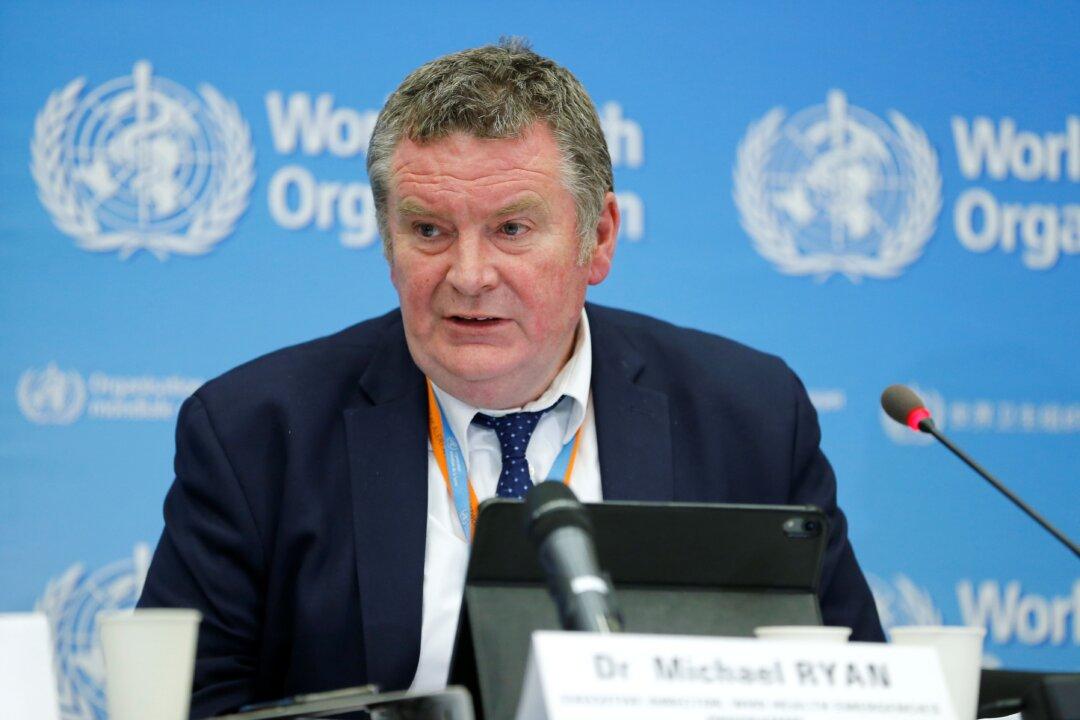The worst of the COVID-19 pandemic could be over this year if issues with distribution of vaccines and treatments are addressed quickly, World Health Organization (WHO) officials said Tuesday.
Speaking during a panel discussion on vaccines hosted by the World Economic Forum, officials noted that while the virus may ultimately never go away, the worst of the pandemic, such as deaths, hospitalizations, and lockdowns, could be over this year so long as issues around the distribution of vaccinations and treatments are addressed soon.




